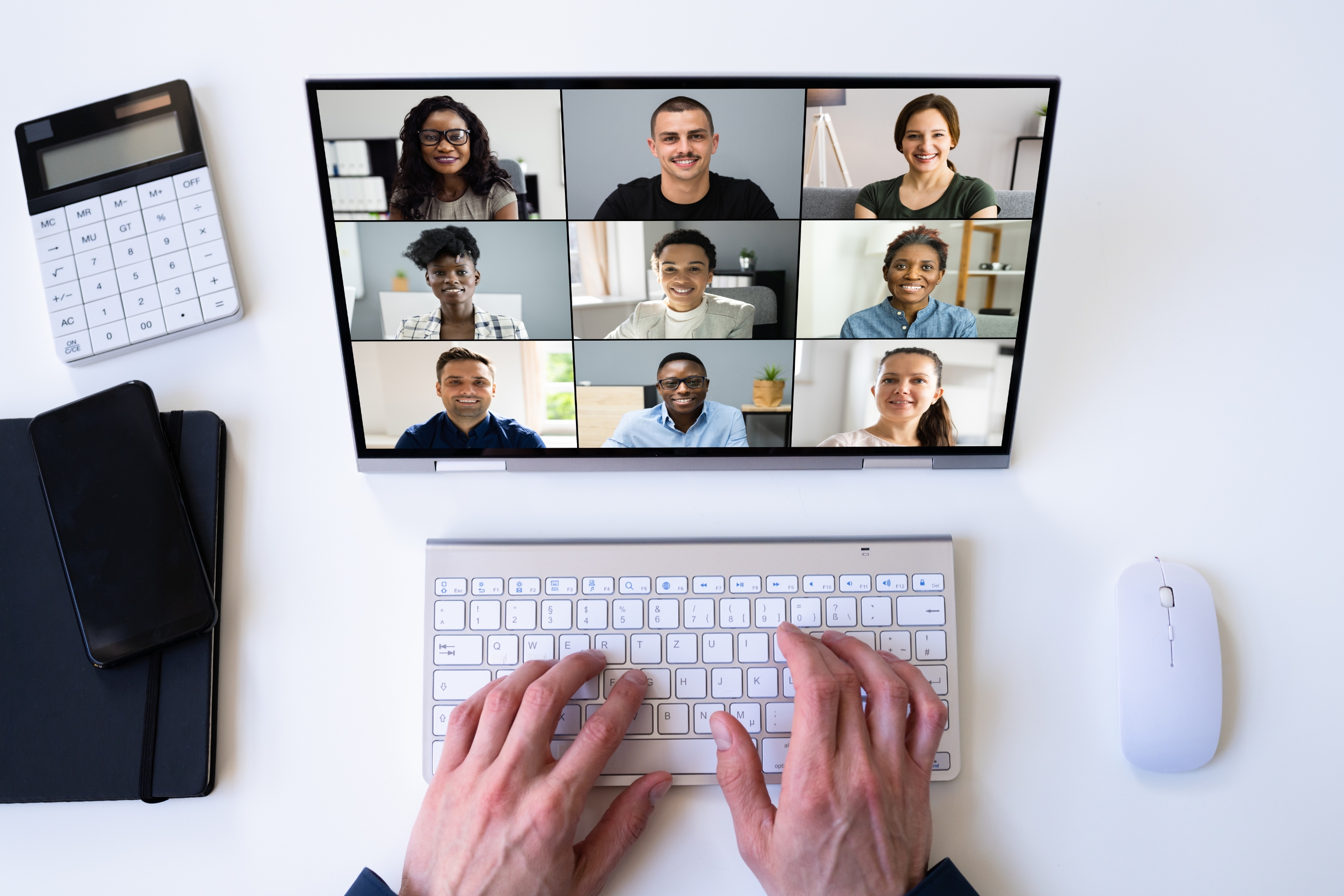Hybrid work has become one of the most transformative shifts in the modern professional world, influencing how people structure their time, build careers, and define long-term goals. As organizations continue to adapt to flexible arrangements, employees across all generations—Boomers, Gen X, Millennials, Gen Z, and the emerging Alpha workforce—are discovering new ways of balancing productivity with personal well-being. This shift is not simply about splitting days between home and the office; it represents a broader cultural realignment that challenges traditional norms surrounding work identity, career progression, and professional expectations.
For many, hybrid arrangements provide room to explore new skills, reconsider priorities, and pursue internal mobility without sacrificing stability. Others view the model as an opportunity to align life commitments with career ambitions in a more sustainable way. While the concept continues to evolve, its impact is already visible in hiring trends, leadership expectations, and daily decision-making. The rise of hybrid work has quietly reshaped how workers at different life stages approach their futures, their responsibilities, and their overall professional direction.
Hybrid Work as a New Professional Standard
Hybrid work has moved far beyond a temporary solution; it is now widely recognized as an emerging standard for modern careers. Organizations spanning technology, finance, retail, and education have discovered that offering employees a blend of in-office and remote days can significantly improve productivity without compromising communication or teamwork. This shift has redefined “normal” working rhythms, allowing employees to design routines that complement their personal lives while still meeting business goals.
Across generations, this shift feels especially significant. Boomers and Gen X appreciate the reduced commute time and enhanced focus during remote days, while Millennials and Gen Z often value the flexibility as part of their lifestyle and wellness priorities. This evolving professional landscape has encouraged employers to rethink performance metrics, mentorship programs, and team cohesion models. It is within this environment that global business insights become increasingly important, helping companies understand how hybrid expectations influence everything from retention rates to long-term workforce planning. As organizations adapt, hybrid work continues to cement itself as a core element of future career development.
How Hybrid Work Fuels Skills Development and Career Mobility
One of the most influential outcomes of hybrid work is the expansion of skill acquisition and career mobility. Remote-capable roles frequently require a combination of digital fluency, communication strength, and self-management—skills that every generation has worked to develop at its own pace. As a result, employees are experiencing new opportunities to transition into roles that align more closely with their strengths. From virtual project management to digital customer experience, hybrid structures provide the flexibility needed to learn, experiment, and grow.
This flexibility also reduces barriers for professional reinvention. Workers who previously felt constrained by office-centric routines now find themselves exploring certifications, workshops, and micro-learning formats that fit seamlessly into their hybrid schedules. Career pivots—once considered risky or impractical—are now embraced across industries as natural responses to ongoing technological change. These developments reflect a broader understanding that growth is no longer anchored solely in tenure or traditional promotion paths, but in adaptability, curiosity, and the willingness to expand one’s capabilities. As more industries embrace hybrid frameworks, the pathways for advancement continue to widen across age groups.
Generational Differences in Adapting to Hybrid Work Models
Each generation brings its own expectations, experiences, and concerns to hybrid work environments. Boomers and Gen X typically prioritize stability and structured routines, often preferring predictable hybrid schedules that balance autonomy with in-office collaboration. Many in these groups appreciate the way hybrid arrangements allow them to maintain productivity while supporting family responsibilities or transitioning into later-career roles with greater comfort.
Millennials, who came of age during the digital acceleration, tend to view hybrid work as a natural extension of technological progress. They often leverage flexibility to enhance work-life integration, minimize burnout, and engage in continuous learning. Meanwhile, Gen Z—digital natives from the start—embrace hybrid work as an essential element of career choice. They value autonomy, modern workplace culture, and opportunities for meaningful connection, even within virtual spaces. The emerging Alpha generation, though still early in their journey, is expected to enter a work environment where hybrid structures are fully normalized. These generational experiences highlight the subtle but powerful adjustments hybrid models bring to professional identity, communication expectations, and long-term career decisions.
The Impact on Workplace Collaboration and Company Culture
Hybrid work has forced companies to rethink how teams collaborate and maintain culture across physical and digital spaces. Traditional office interactions—impromptu conversations, quick problem-solving moments, mentoring through observation—are now supplemented with intentional digital communication strategies. Video calls, asynchronous workflows, and virtual collaboration tools have become essential components of daily operations. These changes have encouraged leaders to focus not only on task completion but on building cohesive, supportive environments regardless of location.
This shift also opens doors for more inclusive interactions. Employees who might have previously felt overshadowed in physical spaces now find greater opportunities to express their ideas through virtual channels. Hybrid environments can reduce social anxieties, minimize interruptions, and allow every generation to participate on equal footing. As communication becomes more structured and thoughtful, teams often experience a renewed sense of clarity and connection. It is within this collaborative evolution that readers increasingly turn to Abacas Daily news updates to understand how workplace culture adapts alongside technological and social change.
Long-Term Career Planning in an Evolving Work Landscape
Hybrid work is reshaping how individuals plan for their long-term careers. Instead of relying solely on traditional ladders, many professionals now pursue nonlinear progressions that blend remote opportunities, contract roles, part-time commitments, and passion-driven side ventures. This diversification allows workers of all ages to design careers that reflect their values rather than simply following established paths. As industries expand and automation introduces new possibilities, hybrid frameworks provide the space necessary to explore future-focused specializations without risking current responsibilities.
This evolution also supports longevity in the workforce. Older generations can continue contributing through flexible arrangements, maintaining professional relevance without the physical strain of daily commuting. Younger workers, meanwhile, benefit from mentorship opportunities that transcend geographical limitations. Hybrid work models encourage broader collaboration, career experimentation, and the creation of sustainable goals that adapt to shifting economic and social realities. These changes collectively signify a future where career development is dynamic, personalised, and more attuned to individual needs than ever before.

Conclusion
The rise of hybrid work has brought profound changes to how people shape their careers, communicate across teams, and understand their roles within a rapidly shifting global workforce. By blending flexibility with structure, the hybrid model has created an environment where individuals across generations can build meaningful professional paths that align with their lifestyles, ambitions, and personal growth priorities. This evolution has encouraged companies to rethink leadership, redefine workplace culture, and offer more inclusive opportunities for collaboration and advancement. While each generation experiences hybrid work differently, they all benefit from its ability to support long-term planning, continuous learning, and balanced living. As industries continue adjusting to these shifts, hybrid work’s influence will only grow stronger, offering a foundation for sustainable and fulfilling careers. With a focus on clarity, depth, and relevance, the story of hybrid work reflects broader societal changes that will continue shaping professional futures for years to come.


